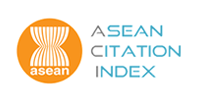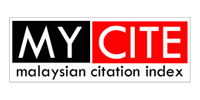Effect of Sodium Ion Addition on Copper Selenide/Chitosan Film Towards Electrical and Shielding Efficiency Improvement
DOI:
https://doi.org/10.58915/ijneam.v17iJune.870Keywords:
Electromagnetic interference, EMI shielding, Conducting polymer, Impedance spectroscopyAbstract
The operation of electronic devices can be disrupted by unwanted electromagnetic signals, affecting its operation. Deploying electromagnetic shielding is a viable solution to minimize the impact of electromagnetic interference (EMI). The conventional methods of electromagnetic shielding use metal gaskets to safeguard sensitive electronic components, which have drawbacks of cost and weight. Hence, electromagnetic shielding polymer can be an alternative to replace metal gaskets. This work investigates the effect of sodium ion (Na) addition to copper selenide/chitosan (CuSe/Ch) film for electromagnetic shielding applications. The shielding polymers were produced using solution casting methods, while the CuSe was synthesized using the chemical coprecipitation method. Impedance spectroscopy and two port waveguide methods were used to characterize the prepared polymer's electrical properties and shielding efficiency. The results indicate that Na incorporation in the CuSe/Ch film resulted in a 47 % decrease in bulk resistivity and increased DC conductivity from 6.07 × 10-6 S/cm to 3.69 × 10˗5 S/cm. The AC conductivity of films containing Na demonstrates a similar level of conductivity at lower frequencies, followed by a sharp increase at higher frequencies, indicating a more substantial influence of Na at higher frequencies. Higher absorption shielding efficiency (SEA) and lower reflection shielding efficiency (SER) were achieved by introducing Na into the CuSe chitosan film. The Na/CuSe/Ch film shows higher total shielding efficiency at an average of 20 dB, equivalent to 99 % of the EM power shield.

















